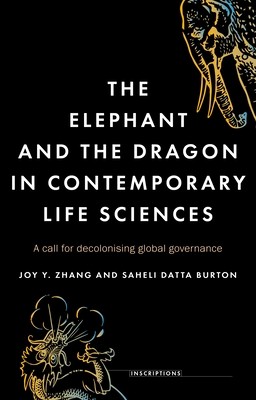
- We will send in 10–14 business days.
- Author: Joy Y Zhang
- Publisher: Manchester University Press
- ISBN-10: 152615952X
- ISBN-13: 9781526159526
- Format: 14 x 21.6 x 1.6 cm, hardcover
- Language: English
- SAVE -10% with code: EXTRA
The Elephant and the Dragon in Contemporary Life Sciences (e-book) (used book) | bookbook.eu
Reviews
Description
This book provides a powerful diagnosis of why the global governance of science struggles in the face of emerging powers. Through unpacking critical events in China and India over the past twenty years, it demonstrates that the 'subversiveness' assumed in the two countries' rise in the life sciences reflects many of the regulatory challenges that are shared worldwide. It points to a decolonial imperative for science governance to be responsive and effective in a cosmopolitan world. By highlighting epistemic injustice within contemporary science, the book extends theories of decolonisation.
EXTRA 10 % discount with code: EXTRA
The promotion ends in 18d.20:05:30
The discount code is valid when purchasing from 10 €. Discounts do not stack.
- Author: Joy Y Zhang
- Publisher: Manchester University Press
- ISBN-10: 152615952X
- ISBN-13: 9781526159526
- Format: 14 x 21.6 x 1.6 cm, hardcover
- Language: English English
This book provides a powerful diagnosis of why the global governance of science struggles in the face of emerging powers. Through unpacking critical events in China and India over the past twenty years, it demonstrates that the 'subversiveness' assumed in the two countries' rise in the life sciences reflects many of the regulatory challenges that are shared worldwide. It points to a decolonial imperative for science governance to be responsive and effective in a cosmopolitan world. By highlighting epistemic injustice within contemporary science, the book extends theories of decolonisation.


Reviews